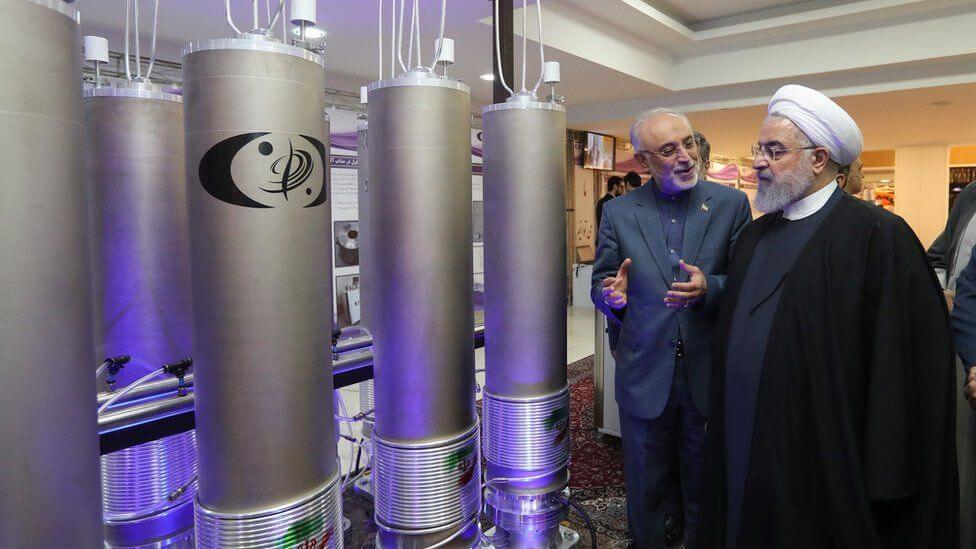Iran is set to enrich uranium to the highest-ever level of 60% following the “sabotage” of its Natanz nuclear facility, in a move that has the potential to derail the ongoing Vienna talks aimed at salvaging the 2015 nuclear deal between Iran and world powers. The decision to raise the level of enrichment was announced by Deputy Foreign Minister (FM) Seyed Abbas Araqchi on Tuesday in a letter to the International Atomic Energy Agency (IAEA).
Previously, in a letter to the United Nations (UN) Secretary-General António Guterres, Iranian FM Mohamad Javad Zarif referred to the incident at Natanz as “nuclear terrorism and a war crime.” Zarif also blamed Israel for the attack, which, according to him, has actively sought “to prevent restoration” of the nuclear deal, officially known as the Joint Comprehensive Plan of Action (JCPOA). The attack, which coincided with the ongoing Vienna meet, came a day after President Hassan Rouhani launched advanced IR-6 centrifuges to boost uranium enrichment, wherein he reiterated that “Iran’s nuclear activities have always been peaceful.”
According to the New York Times, the explosion, which resulted in the blackout of the Natanz facility, had “dealt a severe blow” to Iran’s uranium enriching abilities, which could also compromise Iran’s leverage in the Vienna talks. This would give the US much-needed breathing space in the negotiations, given that Tehran has promised to take strong actions that are prohibited under the agreement until Washington lifts all sanctions.
Shortly after Iran’s announcement on Tuesday, Foreign Minister Zarif met with his Russian counterpart Sergey Lavrov in Tehran to discuss bilateral ties. Lavrov, in a statement, said that Russia “supports the crucial talks that are underway in Vienna and condemns any attempts to sabotage them” while also calling for the removal of sanctions on Iran and the “restrictions imposed on foreign companies for their cooperation with Iran”, referring to Russian contractors.
On the same day, an Israeli-owned ship was attacked near the coast of Fujairah in the United Arab Emirates (UAE), in an attack attributed to Iran. The move marks the continuation of the clandestine maritime clashes between Iran and Israel, as the shadow conflict between both sides has seen a dangerous escalation over the last few weeks. Israel views Iran’s nuclear programme as an existential threat, as several Iranian leaders and officials have called for the annihilation of the Jewish State in the past, and consequently has always been against a nuclear deal with Iran. In November 2020, Iranian scientist Mohsen Fakhrizadeh, who is widely believed to be the mastermind behind Iran’s nuclear programme, was murdered when his car came under attack in northern Iran. FM Zarif, who had labelled the incident as an act of terrorism, blamed Israel for carrying out the assassination. Iran has also suspected the US of being involved in operations conducted by Israel, as both countries have extensive military-intelligence ties.
In his letter to the UN Secretary-General on Monday, Zarif stated that “Iran reserves its right under international law to take all necessary measures” in order to defend its interests against US “terrorist stooges.” The minister added that while his country was interested in reviving the nuclear deal, the US “must cease forthwith to consider unlawful measures” if it seeks to avoid any drastic consequences.
The US, for its part, said on Monday that it was not involved in the attack on Iran’s nuclear plant. White House Press Secretary Jen Psaki told reporters that Washington “was not involved in any manner” and that it was “focussed on the discussions” going on in Vienna.

